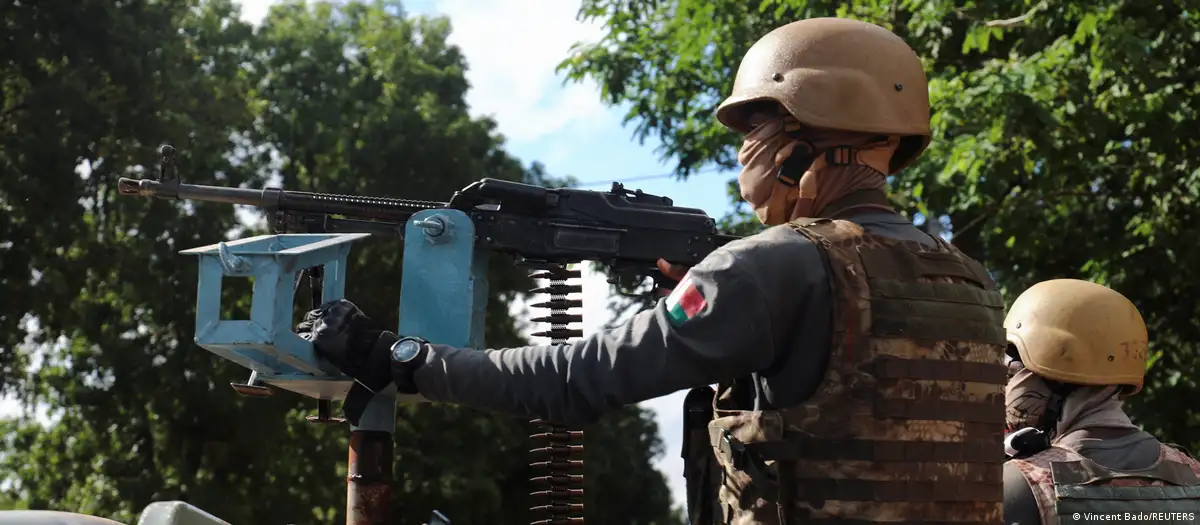The Media Foundation for West Africa (MFWA) is deeply concerned about the recent conscription of journalists and critical opinion leaders in Burkina Faso and urges the junta to cease the practice which constitutes a flagrant abuse of human rights.
The junta led by Captain Ibrahim on November 2, 2023, summoned two prominent journalists to report at a military base to be trained and deployed for the counter-terrorism operations against Jihadist rebels.
The two are Issaka Lingani, a regular feature on BF1 TV’s a political programme “Presse Echos”, and Yacouba Ladji Bama, an investigative reporter and founding editor of the online news website Bam Yinga. Lingani’s summon indicated that he would undergo military training two to three weeks and deployed in the field until February 2024.
While Lingani, 64, has reportedly gone into hiding, Bama has already been living outside the country for months due to threats from junta members and their supporters.
More than a dozen citizens have received similar summons from the army in recent times. Most of them are politicians, journalists, human rights activists, and leaders critical of the current government. Notable figures receiving conscription summons include Ablassé Ouédraogo, a 70-year-old politician and president of the “Le Faso Autre” party, known for his criticism of the transitional government.
Dr. Daouda Diallo, founder of the Collectif contre l’impunité et la stigmatisation des communautés (CISC), and Rasmane Zinaba, a young activist with Balai Citoyen, an influential movement in Burkina Faso’s civil society, have also been targeted.
Gabin Korbéogo, a teacher-researcher, President of the ODJ (Organisation Démocratique de la Jeunesse du Burkina) and Secretary General of the organization’s National Executive Bureau, is also targeted.
One of the targets of the conscription summons told the MFWA anonymously that this approach is “illegal, liberticidal, and aimed at imposing one-track thinking.”
“The conscription is targeted at individuals known for their critical views of the transitional government. All these people are known for their critical views of the management of the Transition. This is the culmination of acts of threats, insults, kidnappings of relatives,” he added.
At a press conference on November 6, 2023, in Ouagadougou, civil society organizations denounced and condemned the new wave of conscription summons, which also targeted some of their members.
The actions of the Burkinabe government are purportedly based on a law of general mobilization signed by Captain Ibrahim Traoré for a period of one year, in particular Decree No. 2023-0475 / PRES-TRANS / PM / MDAC / MATDS / MJDHRI of 19 April 2023, on general mobilization and warning.
Article 2 of the decree on general mobilisation empowers the government to demand the deployment of individuals, goods, and services, to oversee and distribute resources. Article 3 delineates the conditions for requisitioning limited to goods and services, granting the government the authority to do so with compensation or indemnity, ensuring the essential resources for the services and troops to fulfill their missions.
It’s important to highlight that the decree makes no provisions for the forcible conscription of individuals into combat units. While Article 5 of the decree does make reference to requisition of individuals, it is clear emphatic that such requisition is solely for the subjects to observe the situation on the frontline, and not to engage in any field operations. Consequently, the summons are being challenged as inconsistent with the decree of November 14, 2022.
But even before this decree, the authorities had forcibly conscripted a civil society activist. In that incident, Boukare Ouedraogo, who leads the civil society group Mouvement l’Appel de Kaya, was taken to the war zone after he criticised the war effort during a press conference on March 16, 2023 in Kaya.
The MFWA believes that such repressive measures are alarming as they undermine freedom of expression and violate citizens’ fundamental rights. We urge the authorities of Burkina Faso to respect these fundamental rights and immediately rescind these arbitrary conscription summons.
Forcible conscriptions amount to intimidation aimed at silencing critical voices. This poses a threat to democracy and pluralism of opinion. The authorities must, therefore cease weaponising the state of emergency to attack its critics.






